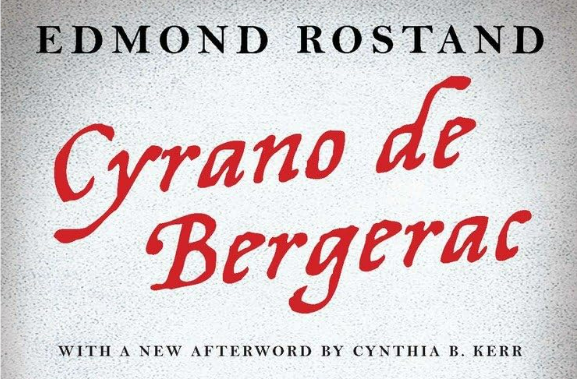Scene 1. VII.
byScene 1. VII. of Cyrano de Bergerac begins with Cyrano being approached by a duenna, who brings with her a mysterious invitation from a lady. The invitation, full of secrecy and anticipation, stirs deep emotions within Cyrano, who is initially caught off guard by the unexpected gesture. The lady, who is none other than his valiant cousin, has asked to meet Cyrano secretly at dawn at St. Roch, followed by a private conversation at Ragueneau’s pastry shop on Rue St. Honore. Despite his initial disbelief and confusion, Cyrano agrees to the rendezvous, and the news fills him with a renewed sense of excitement and purpose. His spirits lift, and he feels an intense surge of energy, proclaiming his readiness to face anything the world might throw his way. This moment marks a significant shift in Cyrano’s emotional state, as he moves from a place of uncertainty to one of profound anticipation and joy.
Soon after, Cyrano is surrounded by a group of actors, actresses, and officers, and is informed by his friends, Cuigy and Brissaille, that his drunkard friend, Ligniere, is in grave danger. Ligniere has received a letter warning him of a deadly ambush by a group of one hundred men at the Porte de Nesle, all triggered by a satirical song he wrote. Knowing that Ligniere is unable to return home safely, Cyrano decides to act, setting his mind on ensuring his friend’s protection. In an instant, Cyrano’s protective nature takes over, and his resolve to confront the threat head-on is clear. His commitment to Ligniere’s safety elevates his already heightened state of emotion, and he prepares to face the attackers alone, displaying his courage and sense of loyalty. This decision to stand by his friend, even at great personal risk, further demonstrates Cyrano’s devotion to honor and friendship.
Cyrano’s determination to protect Ligniere garners the admiration of the people around him, who are moved by his willingness to fight a hundred men without hesitation. Even his close friend, Le Bret, expresses concern, questioning the wisdom of engaging in such a dangerous endeavor for someone like Ligniere, whom he considers a “worthless drunkard.” Cyrano, undeterred by the criticism, responds with a heartfelt recollection of Ligniere’s past act of love and grace, a moment that had won Cyrano’s deep respect and eternal loyalty. This anecdote sheds light on Cyrano’s view of friendship and loyalty, showing that his commitment is not driven by superficial judgments but by a deep understanding of character and honor. His loyalty to Ligniere transcends the man’s current state of drunkenness, revealing Cyrano’s capacity to see the humanity and worth in others, even when they may not always appear deserving.
Despite the warnings of danger and the potential for violence, Cyrano remains steadfast in his decision. He orders a march to the Porte de Nesle, rallying his fellow actors, actresses, officers, and even violinists into a makeshift procession. His march, however, is not just a simple act of bravery but a theatrical spectacle, filled with flair and dramatic declarations. Cyrano, ever the showman, transforms the looming battle into a performance, complete with dramatic speeches and a refusal to allow anyone to assist him in the fight. His boldness, combined with his love for drama, turns the mission into an event that blends courage with theatricality. The procession, filled with a colorful cast of characters, sets off into the moonlit streets of Paris, leading them toward the uncertain fate that awaits at the Porte de Nesle. The sense of anticipation and tension builds, as the reader is left wondering what will unfold in the face of the impending confrontation.
This chapter of Cyrano de Bergerac artfully combines themes of loyalty, bravery, and the complex nature of Cyrano’s character. Cyrano’s willingness to risk his life for Ligniere illustrates his deep commitment to his friends, while his dramatic flair adds a layer of theatricality to his actions. His decision to take on the entire group of attackers alone highlights his courage and sense of duty, further underscoring his heroic traits. At the same time, his interactions with Le Bret and his reminiscence about Ligniere’s past actions reveal the depth of Cyrano’s loyalty and his ability to see beyond the surface to the true character of those he cares for. The blending of heroism with spectacle in Cyrano’s actions also showcases his larger-than-life personality, one that seeks not only to defend and protect but to do so in a way that is both bold and memorable. This chapter sets the stage for Cyrano’s further adventures, demonstrating the complexity of his character and the passionate, selfless nature of his actions.


